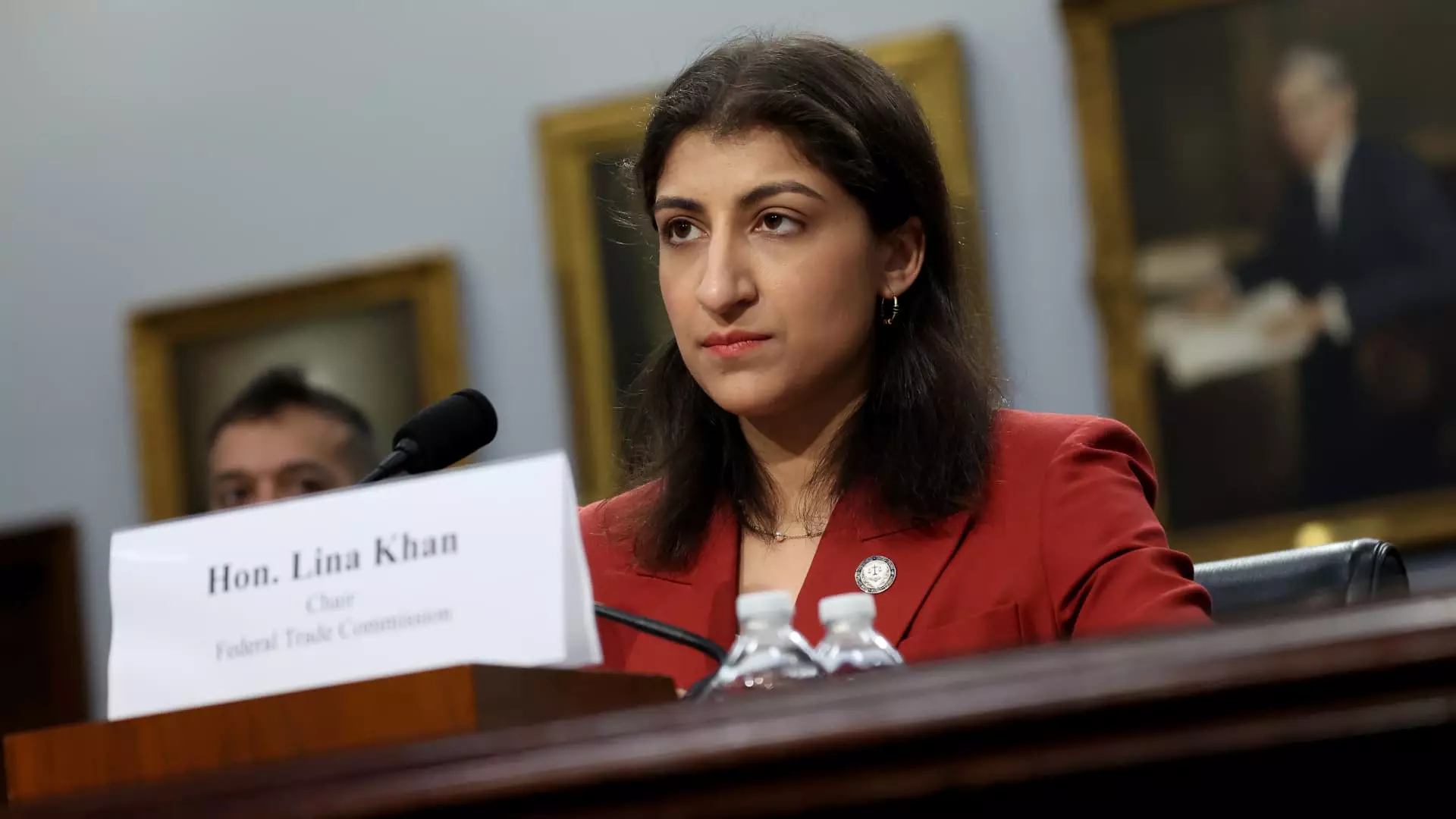In a bold move aimed at addressing consumer welfare in the healthcare sector, the Federal Trade Commission (FTC) has taken legal action against three of the largest pharmacy benefit managers (PBMs) in the United States. This lawsuit underscores a growing concern that the practices of these drug middlemen contribute not only to inflated medication costs but also deepen the financial strain on millions of diabetes patients who rely on insulin. By examining the implications of this legal battle, we can begin to appreciate the complexities of drug pricing and the labyrinthine structure of the American healthcare system.
The FTC’s complaint specifically targets UnitedHealth Group’s Optum Rx, CVS Health’s Caremark, and Cigna’s Express Scripts. These three entities are responsible for managing a staggering 80% of the nation’s prescription drug coverage. Intriguingly, these PBMs are intricately linked to larger health insurers, bringing into question the motivations behind their pricing strategies. The ensuing investigation raises critical questions about the industry’s operating model, particularly how rebates negotiated with pharmaceutical companies may disproportionately benefit PBMs at the expense of consumers.
This lawsuit, however, also involves the affiliated group purchasing organizations of these PBMs, which serve as brokers for pharmaceutical purchases made by hospitals and healthcare providers. The interconnectivity between PBMs and health insurers highlights a convoluted profit-driven ecosystem that can compromise patient access to essential medications.
The FTC’s lawsuit accuses the PBMs of perpetuating a “perverse” system wherein high rebate agreements with drug manufacturers contribute to artificially inflated list prices for insulin. These inflated prices can have devastating effects on patients, many of whom struggle to afford their medication. Given that approximately eight million Americans with diabetes depend on insulin, the financial burden stemming from these practices becomes starkly apparent.
A notable aspect of the FTC’s argument is the claim that PBMs tend to favor high-list-price insulins—even when more affordable alternatives are on the market. This strategy not only suggests a skewed incentive structure but also raises ethical concerns about the role of PBMs as gatekeepers in the drug supply chain. As these companies negotiate drug prices, who ultimately reaps the rewards of their activities could very well be the PBMs themselves, rather than the patients who need the medications.
In the wake of the FTC’s announcement, responses from the sued PBMs reflect a blend of indignation and denial. CVS Health’s Caremark defended its actions, claiming it has made significant strides toward making insulin more affordable. Express Scripts criticized the FTC’s lawsuit, arguing that it is emblematic of an ongoing pattern of unfounded allegations directed at PBMs. Such defensive responses indicate a reluctance to acknowledge any potential complicity in the systemic issues surrounding insulin pricing.
Moreover, the legal pushback from Express Scripts against the FTC, based on claims of “defamatory” reports, illustrates the contentious nature of this dialogue. This legal tug-of-war not only highlights the adversarial dynamic between regulatory bodies and industry giants but also amplifies the call for transparency in an increasingly opaque healthcare environment.
The recent actions taken by the FTC come at a time when the Biden administration is intensifying efforts to reform the healthcare landscape. The Inflation Reduction Act, which caps insulin costs for Medicare recipients at $35 monthly, illustrates a significant step toward addressing exorbitant drug prices. Still, this measure does not alleviate the burden for patients with private insurance, indicating that much work remains to ensure equitable access to medicine.
The FTC’s lawsuit against PBMs is part of a larger movement aimed at increasing transparency and accountability within the pharmaceutical industry. With Americans paying two to three times more than their peers in other developed countries for prescription drugs, the urgency for systemic reform has never been greater. The FTC has expressed a commitment to exploring the roles of insulin manufacturers—Eli Lilly, Sanofi, and Novo Nordisk—in inflating prices. As they currently dominate the insulin market with a 90% share, their practices too warrant closer scrutiny.
The FTC’s lawsuit against three major PBMs marks a pivotal moment in the ongoing struggle to make insulin—and, by extension, other medications—more affordable for American consumers. As the legal process unfolds, its ramifications extend beyond insulin pricing; they signal a potential shift toward a more transparent and equitable healthcare paradigm. Only time will reveal whether this legal action triggers substantive changes, but it undeniably raises pressing questions about the current state of drug pricing and the health of the American populace. In advocating for patients’ rights, the FTC aims not just to right wrongs in the insulin market but also to lay the groundwork for a healthier and more equitable healthcare system.

